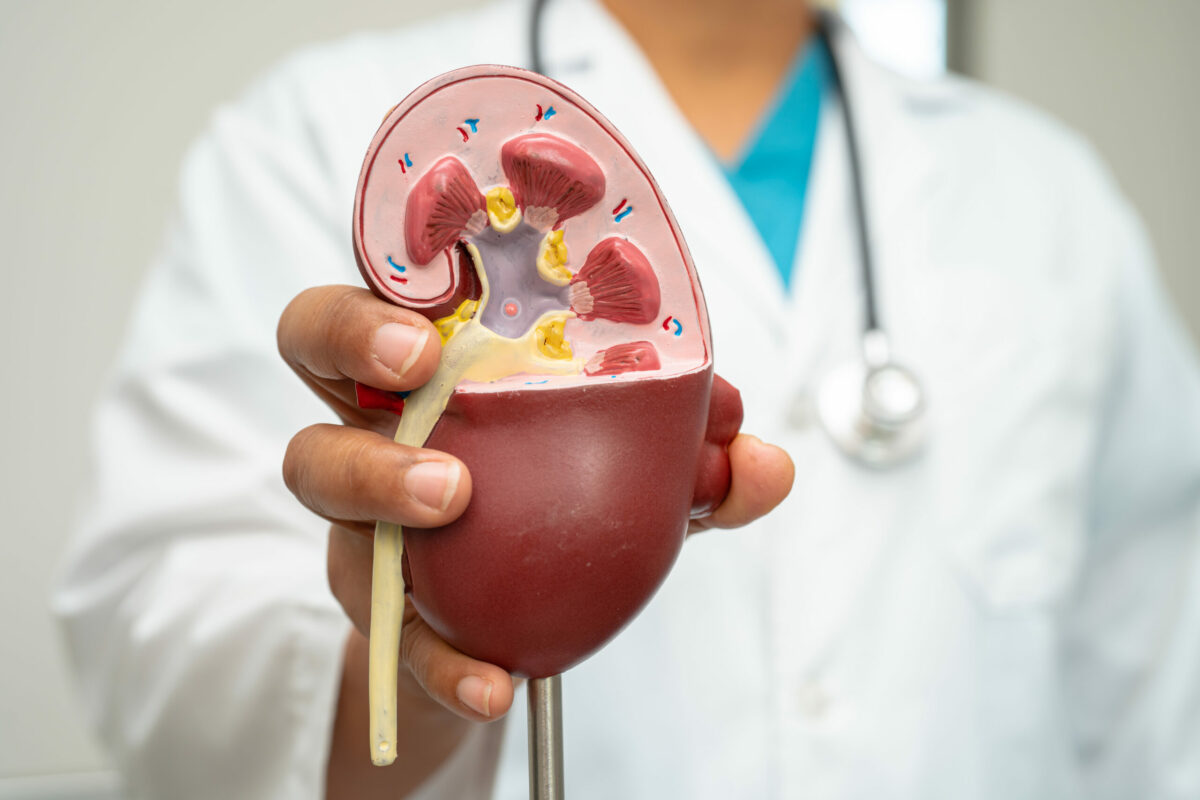A disease in which scar tissue occurs in the glomeruli is called focal segmental glomerulosclerosis (FSGS). Glomeruli are certain small parts of the kidneys that help filter waste and toxins from the blood. However, there are multiple conditions that may cause FSGS.
This glomeruli condition is quite serious and may lead to kidney failure. Unfortunately, this condition can be treated with dialysis or kidney transplant only but treatments may be different depending on the FSGS type.
Focal Segmental Glomerulosclerosis Types
- Primary FSGS – In most cases, people with this FSGS type do not know the exact cause. It is also called idiopathic FSGS.
- Secondary FSGS – People with this type usually have an underlying condition. For example drug toxicity, infections, diabetes, sickle cell disease, or even another kidney condition. However, treating the underlying disease helps reduce damage to the kidneys and improve their function.
- Genetic FSGS – This FSGS type also is called familial FSGS and it occurs due to an abnormal gene that passes from the biological parents to biological children.
- Unknown FSGS – Sometimes, it is not possible to identify the underlying condition nonetheless symptoms evaluation and extensive testing.
Symptoms
People with focal segmental glomerulosclerosis often experience the following symptoms. Examples include:
- Edema (swelling in the legs and ankles due to fluid buildup)
- Weight gain caused by edema
- Proteinuria (foamy urine caused by protein buildup)
If any of the FSGS symptoms occur, immediately visit a healthcare professional.
Causes
There are many health conditions that can cause FSGS. These include other kidney diseases, infections, sickle cell disease, diabetes, obesity, and others. Some people may develop FSGS due to misuse of illegal drugs or alcoholic drinks, certain medicines, or toxins.
In addition, some gene changes also may cause focal segmental glomerulosclerosis. These gene mutations often run in families and pass from parents to children. However, in some cases, it is not possible to determine the exact cause of FSGS.
Risk Factors
The following factors may increase the risk of getting FSGS. For example:
- Health conditions that cause damage to the kidneys include obesity, lupus, and others.
- Infections – There are some infections that significantly increase the risk of developing focal segmental glomerulosclerosis. For example Hepatitis C, HIV infection, and others.
- Gene changes (mutations) – Some abnormal genes that usually run in families may pass from parents to children and cause FSGS.
What Are The Possible Complications of Focal Segmental Glomerulosclerosis?
If you ignore the symptoms and do not treat the condition, it may lead to certain complications. For example:
- Nephrotic syndrome – This is a condition in which the body begins to pass an increased amount of protein in the urine. As a result, it may lead to other health problems including hypertension (high blood pressure), blood clots, and others.
- Kidney failure – FSGS may cause damage to the kidneys due to excess toxins and waste from the blood and lead to kidney failure. In other words, the kidneys no longer work properly. The only treatments available for people with kidney failure are dialysis and a kidney transplant.
Diagnosis
To diagnose this condition, doctors will ask some questions about the symptoms and your medical history. To confirm the condition they usually perform the following tests. Examples include:
- Urine and blood tests – These tests are done to measure the amount of protein and other substances in the urine and check kidney function.
- Kidney imaging – These include ultrasound, CT (computerized tomography) scan, and MRI (magnetic resonance imaging) scan. These imaging tests help get detailed images of the kidneys.
- Kidney biopsy – During this procedure, doctors will use a specific needle to get a small sample of the kidney and send it to the laboratory for testing. A kidney biopsy can confirm FSGS.
Treatment
Healthcare providers usually prescribe different treatments for people with FSGS because it depends on the severity and type of the condition, existing health problems, age and symptoms, and others. Check below the most common treatment options used in people with FSGS:
Medicines
- ACE (angiotensin-converting enzyme) inhibitors or ARBs (angiotensin II receptor blockers) – These medicines are recommended by doctors to decrease protein levels in the urine and blood pressure.
- High cholesterol medications
- Diuretics (also known as water pills) – These medications may ease swelling and reduce blood pressure caused by edema.
- Corticosteroids – These medicines block the immune system from damaging the kidneys in people with primary FSGS. However, corticosteroids may cause severe adverse reactions so, should be taken with caution.
Furthermore, FSGS may return over time due to permanent scarring of the glomeruli. Therefore, people with this disease need regular kidney checkups.
Home Remedies
Check below some tips that may help keep the kidneys healthy:
- It is not allowed to use medications that can damage the kidneys without your doctor’s approval. Otherwise, it may lead to serious health problems. These include anti-inflammatory drugs (NSAIDs) such as Ibuprofen or Naproxen sodium.
- Adopt a healthy diet to protect the kidneys and reduce hypertension.
- It is advised to quit smoking or never begin. However, if you are facing problems with smoking cessation, discuss it with your healthcare professional.
- Keep a healthy weight
- Regularly exercise (it is recommended to aim for at least 30 minutes of physical exercise per day)
Frequently Asked Questions
What is the difference between FSGS and glomerulonephritis?
While FSGS is caused by scarring of the glomeruli tissue, glomerulonephritis occurs due to blood vessel inflammation. For more details, consult with your doctor.
What are the possible causes of FSGS?
- Other kidney conditions
- Some medicines
- Diabetes
- Obesity
- Infections (such as HIV infection or Hepatitis C)
- Sickle cell disease
- Lupus
This article does not contain all possible causes of focal segmental glomerulosclerosis.
What are the FSGS complications?
Those who suffer from focal segmental glomerulosclerosis may experience some complications, especially if they do not get treatment. Check below some of them:
- Hypertension (high blood pressure)
- Kidney failure caused by prolonged kidney damage
- Nephrotic syndrome
- Reduced thyroid hormone levels
- High cholesterol
- Malnutrition
- Infections
Moreover, a lot of people who experience FSGS do not experience any symptoms. If you have any other questions, ask your healthcare provider.




